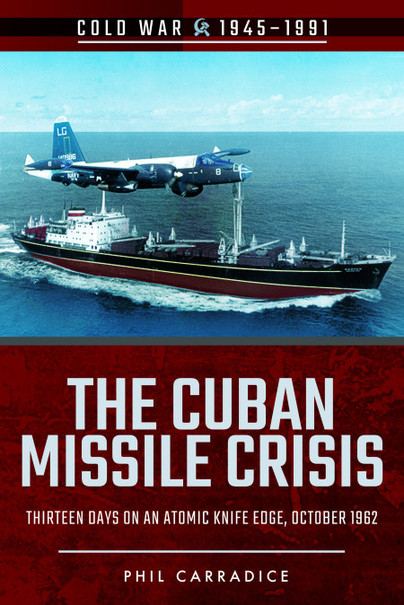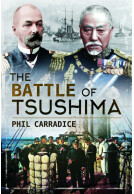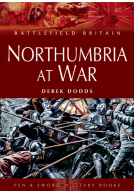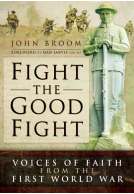Bay of Pigs (Paperback)
CIA's Cuban Disaster, April 1961
Imprint: Pen & Sword Military
Series: Cold War, 1945–1991
Pages: 128
Illustrations: 20
ISBN: 9781526728296
Published: 16th April 2018
(click here for international delivery rates)
Order within the next 8 hours, 14 minutes to get your order processed the next working day!
Need a currency converter? Check XE.com for live rates
| Other formats available | Price |
|---|---|
| Bay of Pigs eBook (22.4 MB) Add to Basket | £6.99 |
Perhaps not in casualties but as far as prestige and standing in the world were concerned, the Bay of Pigs invasion of 1961 was the worst disaster to befall the USA since the War of 1812 when British forces burned the White House. Badly planned, badly organized, the affair was littered with mistakes from start to finish – not least with an inept performance by John F Kennedy and his new administration.
Supposedly an attempt by Cuban exiles to regain their homeland, the whole operation was funded and equipped by the USA. When things began to go wrong with the landings at Playa Larga and Playa Giron on the southern coast of Cuba President Kennedy and his advisers began overruling military decisions with the result that the invading Brigade 2506 – made up of Cuban exiles – was left with little or no air cover, limited ammunition and no easy escape.
Fidel Castro made great play of his success and American failure at the Bay of Pigs. He, like Nikita Khrushchev, thought Kennedy was weak: the Cuban Missile Crisis of the following year was almost an inevitable consequence of the disaster.
"...a readable, accessible introduction to the topic."
H-Net Reviews
Phil Carradice’s Bay of Pigs serves as a concise narrative of the CIA-sponsored Cuban exile brigade’s ill-fated invasion of Cuba in April 1961. Carradice, a Welsh broadcaster, author, and poet, provides a narrowly focused examination of the immediate decisions that prompted the United States to embrace covert action against the Fidel Castro regime and the tactical details of the invasion itself.
H-Net
Written as part of a larger Cold War series by military history publisher Pen and Sword, Bay of Pigs is a well-produced volume, with several maps and photographs that provide additional color and clarification of the material. It is most useful as an introduction to the failed covert intervention.
Read the full review here
Review by Neville Taylor
The Royal United Services Institute of Victoria
As per his story-tellers’ approach, Carradice has provided an excellent concise political background, and pen (and photographic) picture of the major players and locales. Two maps place the reader ‘in-situ’ for the doomed invasion that was to unfold.
An excellent monograph for those of us who vaguely recall the invasion; but more importantly, a reminder to a current generation of a past event on the world stage from which so many lessons both politically and militarily can be learned.
The narrative is brilliantly engaging. Carradice has done an excellent job of bringing this era to life and setting out the, quite complex, information in an entertaining and informative way.
Wargames Illustrated
Read the full review here
Barry Gem, 9th July 2018
Article: 'Vale author's new books' as featured by
Barry Gem, Llantwit Major Gem, Bridgend & Porthcawl Gem and Cowbridge Gem, 5th July 2018 - words by Brian Lee
About Phil Carradice
Phil Carradice is a well-known writer and historian with over 60 books to his credit. A poet, story teller and broadcaster, his most recent books are The Cuban Missile Crisis (Pen and Sword), The Call Up (Fonthill) and the novel Stargazers for Accent Press. He is a regular broadcaster on BBC Radio and TV, presents the BBC Wales History programme 'The Past Master' and is widely regarded as one of the finest creative writing tutors in Wales.
The Cuban Missile Crisis Thirteen Days on an Atomic Knife Edge, October 1962 (Paperback)
When the world held its breath … It is more than 25 years since the end of the Cold War. It began over 75 years ago, in 1944 – long before the last shots of the Second World War had echoed across the wastelands of Eastern Europe – with the brutal Greek Civil War. The battle lines are no longer drawn, but they linger on, unwittingly or not, in conflict zones such as Syria, Somalia and Ukraine. In an era of mass-produced AK-47s and ICBMs, one such flashpoint was the Cuban Missile Crisis … The Cuban Missile Crisis of 1962 was the closest the world has yet come to nuclear war, a time when…
By Phil CarradiceClick here to buy both titles for £29.98



























